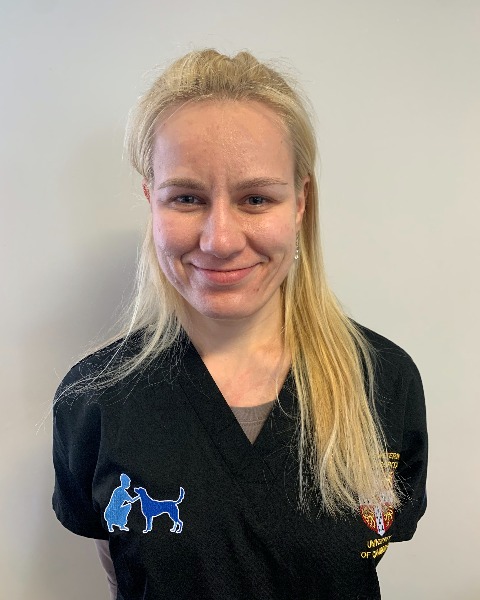Back
abs: Patient-Specific Guides in Canine TKR
Small Animal
abs: Patient-Specific Guides in Canine TKR
Update on Treatment of Hind Limb Conditions
Friday, October 14, 2022
11:30am – 11:45am
Location: Oregon Ballroom 203-204

Agnieszka B. Frącka, DVM MSc MRCVS
Small Animal Surgical Intern
Washington State University
Abstract Presenter(s)
Total knee replacement (TKR) surgery is usually performed with the aid of generic cutting blocks/guides, but there is growing interest in the use of patient-specific guides (PSGs) that may be more accurate, especially in the face of complex joint deformity. The objective of this canine cadaveric study was to determine whether PSGs improve the accuracy of tibial component positioning in canine TKR, as compared with the use of generic cutting guides. Sixteen pelvic limbs from skeletally mature medium- to large-breed canine cadavers were randomly allocated to one of two groups (PSG or Generic; N=8/group). In the Generic group, femoral and tibial osteotomies were made using the standard BioMedtrix canine TKR femoral cutting blocks and tibial alignment guide. In the PSG group, the cuts were made using a series of five femoral and one tibial custom 3D-printed cutting guides. Post-operative radiographs were used to measure tibial component alignment in the frontal and sagittal plane. The use of PSGs resulted in a statistically significant reduction in frontal plane alignment error (p=0.027). There was no significant difference between PSG and Generic groups for the accuracy of sagittal plane alignment (2.49° ± 1.84° versus 1.76° ± 1.38° respectively, p=0.39). These findings support the use of PSGs for TKR in dogs. Prospective evaluation in a clinical trial is now warranted to determine whether the benefits of PSGs on component alignment translate into measurable improvements in joint function and implant longevity.
